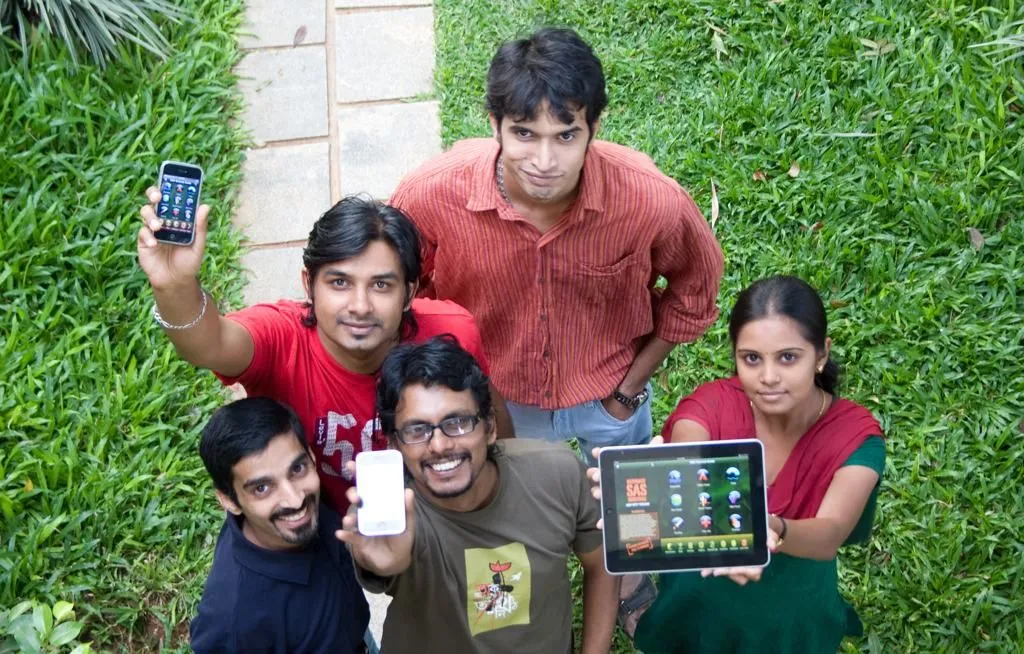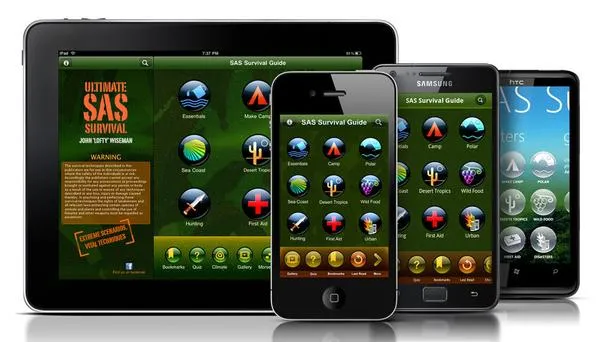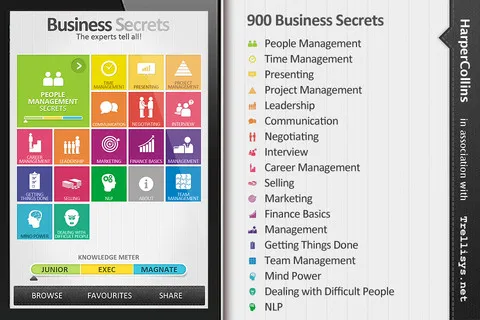On a sunny afternoon in Bengaluru, I found myself driving the traffic laden roads of the city to a part of the town I’d never been to before. After multiple phonecalls to the person I was going to meet, a couple of stop overs to ask for directions and after cursing the general traffic on roads, I finally found a spot to park. The entire journey was to get a sneak peek into what could be the next big thing in the digital content consumption.
Trellisys.net announced today, the launch of PaperTrell - a digital publishing platform for mobile devices, which would leverage the power of technology and design to disrupt reading experience of books on a mobile device. A few weeks before the launch, YourStory.in caught up with Arun Benty, the co-founder of Trellisys.net.

What should you disrupt and what you shouldn’t
The concept of reading on a digital medium has been around for awhile, and ebooks are the form we best know them in. With books, Arun explained, there are fiction/story books and there are the reference books. Arun says “Disrupting the reading experience of a story book is a bad idea. You’d want to lose yourself in the imaginary world of the story and any external influence, such as multimedia, will mostly not be appreciated.”

The scope for disruption, according to Arun, lies in the non-story format books. This can include anything from a cookbook to a wildlife survival manual. “Any book like this, shouldn’t be read from cover-to-cover and technology, especially mobile, opens up a world of opportunities to enhance the reading experience of these books,” said Arun. Trellisys specializes in enhancing the reading experience of these books by converting them into customised content delivery mobile applications.
Understanding mobility
The success of a mobile app that presents content, lies in the app makers understanding of mobility. Is the amount of content too much or too little for a 4 or 5 inch screen? How do I move to the next page - do I swipe or scroll? How should I index the content and have no more than one or two clicks to access it? How do I change the app to suit a tablet?

These are just some questions that the app development process of content delivery poses to the developer. Having worked on mobile apps since its inception with iPhone, Arun’s team at Trellisys had answers to all those questions and more. “The first book we worked on was SAS Survival guide. It took us about 6 months to get the app out and we launched it with the physical book, with a small note on it saying that the app was available for $6. Believe me, this app made over a million dollars in revenue,” says Arun. The ratings and review that the app has on its app store page, concur with Arun’s claim. Furthermore, the success of SAS Survival Guide was a part of the App and Mobile Case Study Book, compiled by Rob Ford.
Trellisys worked on more such books and has the distinction of working with publishing houses, such as HarperCollins and The Octopus Publishing Groups. All their endeavors ended up with results similar as that of the SAS Survival Guide.
The story, however, doesn’t end here. While the app approach to books was the way forward, it wasn’t scalable. Converting each book into an app was a cumbersome process - time consuming and expensive. It would take another innovation from Trellisys to take this innovative idea to the masses. A platform.
Enter PaperTrell
This video summarises what PaperTrell is -
It is a platform for authors to make their books into interactive, reader friendly mobile apps. Here’s a list of features that an author can get with PaperTrell -
- Authors can build native mobile apps for all major app platforms which include concepts such as timers, checklists for cookbooks and quizzes and advanced searches for reference books.
- Authors can manage these apps using a dashboard that provides real-time sales and social analytics.
- It engages readers with author connect and social reading capabilities that enable them to read with others, share ideas, write comments, share loves and likes in the context of the book, across devices.
- Lastly, it helps authors promote their apps with proactive marketing strategies and app discovery services including dedicated app websites and a
- smart marketing calendar
The passion with which Arun describes the product with can make you lose objectivity. But not in our case and here’s what we think:
- The closest alternative to PaperTrell is Apple’s iBooks, which provides similar features. But, the solution is restricted to Apple users only, whereas PaperTrell caters to Android, iOS, Windows, Nook and Kindle Fire.
- While this platform is a novel solution to the scale problem, it does compromise on the customization of app - there are not too many categories and templates that a user can choose from.
- Arun also revealed that the features of the app is dependant on the format of the content fed into PaperTrell. While it is easy to implement native app features when content is fed in as an XML, word file or an ePub, there isn’t much that PaperTrell can do with respect to features, if the content is fed in as a PDF.
But most of these shortcomings are temporary, as PaperTrell is confident of ironing the creases as they move along. Papertrell is free to create up to 3 apps. If you’re an author, give it a spin and tell us what you think.








